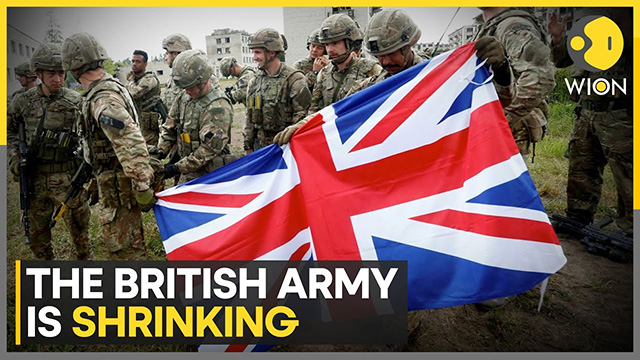
Rishi Sunak committed to spending 2.5 per cent of GDP on defence by 2030 as he holds talks with NATO allies. The PM made the pledge to boost defence spending by an extra £75billion as he visited Warsaw.
He warned that the world is the 'most volatile' for years and industry must go on a 'war footing'.
At a joint appearance with NATO chief Jens Stoltenberg at a military base in the Polish capital, Mr Sunak said the UK defence budget will increase immediately.
He vowed it would then rise steadily to reach £87billion a year at the end the decade.
Mr Sunak said: 'We cannot keep expecting America to pay any price or bear any burden if we ourselves are unwilling to make greater sacrifices for our own security.'
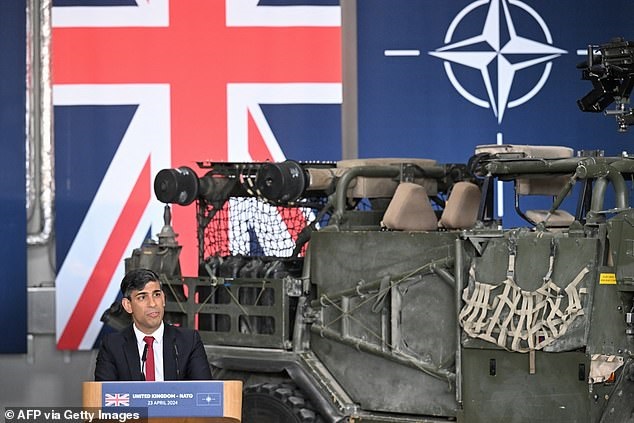
Secret MoD report reveals 32 out of 33 infantry battalions are dangerously short of battle-ready soldiers. Leaked Ministry of Defence report lays bare the appalling state of Britain's army. The 1st Battalion, the Scots Guards, has only 339 troops ready for operations, reveals ‘The Daily Mail’.
All but one of its 33 infantry battalions are dangerously short of combat-ready troops, according to the alarming Ministry of Defence report.
Marked 'Official: Sensitive', it shows that key frontline units have barely half the manpower needed for operational deployment.
A former defence minister said it brought into question whether the UK could still meet its obligations as a leading member of Nato.
The MoD document – titled 'Infantry Battalion Soldier Strength Summary, January 2021' – lists how many soldiers each of the 33 battalions needs.
The 1st Battalion, the Scots Guards, one of the Army's most prestigious regiments, ranks worst. It has a working requirement for 603 troops, yet only 339 are available for operations – a deficit of 264.
Key frontline units in the British Army have barely half the manpower needed for operational deployment, according to a leaked Ministry of Defence report.
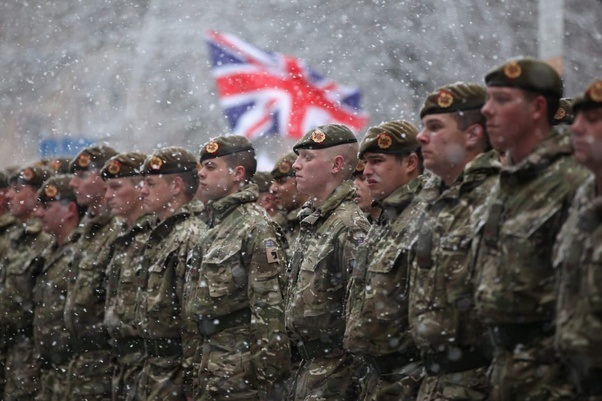 Photo: News.Sky.com
Photo: News.Sky.com
A senior US general has privately told Defence Secretary the British Army is no longer regarded as a top-level fighting force, defence sources have revealed.
They said this decline in war-fighting capability – following decades of cuts to save money - needed to be reversed faster than planned in the wake of Russia's war in Ukraine.
"Bottom line... it's an entire service unable to protect the UK and our allies for a decade," one of the defence sources said.
The sources said Rishi Sunak risked failing in his role as "wartime prime minister" unless he took urgent action given the growing security threat posed by Russia.
It would take five to 10 years for the army to be able to field a war-fighting division of some 25,000 to 30,000 troops backed by tanks, artillery and helicopters
Some 30% of UK forces on high readiness are reservists who are unable to mobilise within NATO timelines - "so we'd turn up under strength"
The majority of the army's fleet of armoured vehicles, including tanks, was built between 30 to 60 years ago and full replacements are not due for years
Such concerns are not just being expressed by individuals inside UK defence circles, with sources saying a high-ranking US general offered a frank assessment of the British Army to Mr Wallace and some other senior officials last autumn.
The general used a term to rank the strength of a country's military, with tier one regarded as a top-level power such as the United States, Russia, China and France and a status the UK also seeks to hold.
Tier two would describe a more middling power with less fighting capability such as Germany or Italy.
According to the sources, the general, referring to the army, said: "You haven't got a tier one. It's barely tier two."
In 2020, Boris Johnson, as prime minister, increased defence spending by £16bn – the biggest uplift since the Cold War, but not enough to plug the gaps.
Since then, rising inflation, foreign exchange rates and the need to accelerate modernisation plans in the wake of Ukraine will mean more cuts without new cash, the sources said.
The chronic erosion has created what defence sources describe as a "hollow force", with insufficient personnel, not enough money to train and arm those still on the books, out-dated weapons and depleted stockpiles of ammunition and spare parts.
At just 76,000 strong, the British army is less than half the size it was back in 1990 and the smallest it has been since Napoleonic times.
The force is due to shrink even further to 73,000 under current plans that will be implemented unless new money is found.
But unusually, even serving officials have started to speak more bluntly in public about their depleted capabilities - a clear signal of serious concern within the Ministry of Defence's main building and at the headquarters of the three services as well as strategic command.
Regrowing military capability - something most European nations are also having to do – is difficult, particularly because of the need to balance support to the UK's own defence industry and jobs against securing bulk purchases at a competitive price.
A separate defence source said: "The defence secretary has made clear for years now, about the need to modernise our army to ensure it keeps pace with our allies.
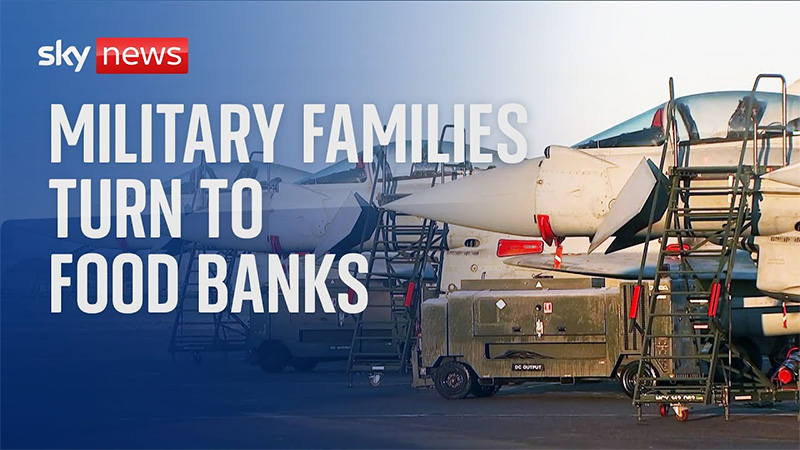
Some military personnel and their families have been forced to use food banks as high inflation and rising costs tip members of the Armed Forces into crisis, Sky News can reveal.
An unofficial food bank even exists at a large Royal Air Force base in Lincolnshire, a defence source said.
The voluntary facility at RAF Coningsby - home to Typhoon fast jet squadrons - was set up by an aviator to collect food donations from servicemen and women to support civilians in their local community. But the source claimed it is now being used by RAF personnel too.
Internal RAF documents seen by Sky News - as well as interviews with military sources and charities – offer a sense of the wider impact of the cost of living crisis on defence, including:
- The need for a number of service personnel to choose between "food or fuel", with some unable to afford to drive home from their base to see family
- One aviator, a single mother, was forced to go without a hot meal for four days because she had spent her last money on baby milk formula
- The volume of enquiries to a key charity from or on behalf of military personnel seeking financial support has more than doubled
- There are individuals who can no longer even afford the price of the subsidised meals at their mess
- A sense of "discontent" at covering for striking public sector workers on better pay deals when the Armed Forces are not permitted to take industrial action themselves
While the documents referred to the situation inside the RAF, a Royal Navy source and an Army source said personnel in their respective services were also experiencing hardships.
Yet analysis of morale across the whole of the RAF last year by military chaplains revealed that a limited number of personnel were resorting to food banks in the local areas.
An anonymous quote in the report read: "The food bank is popular."
Overall, the report found that cost of living pressures as well as failings with military accommodation - such as faulty heating and vermin - were the biggest factors "adversely impacting" morale.
Separately, the defence source with knowledge of the food bank at RAF Coningsby claimed that service personnel had been using the facility "extensively".
Asked how they felt about this, the source said: "Incredibly angry and frustrated that we had got to the point where service personnel had to rely on charitable agencies just to exist."
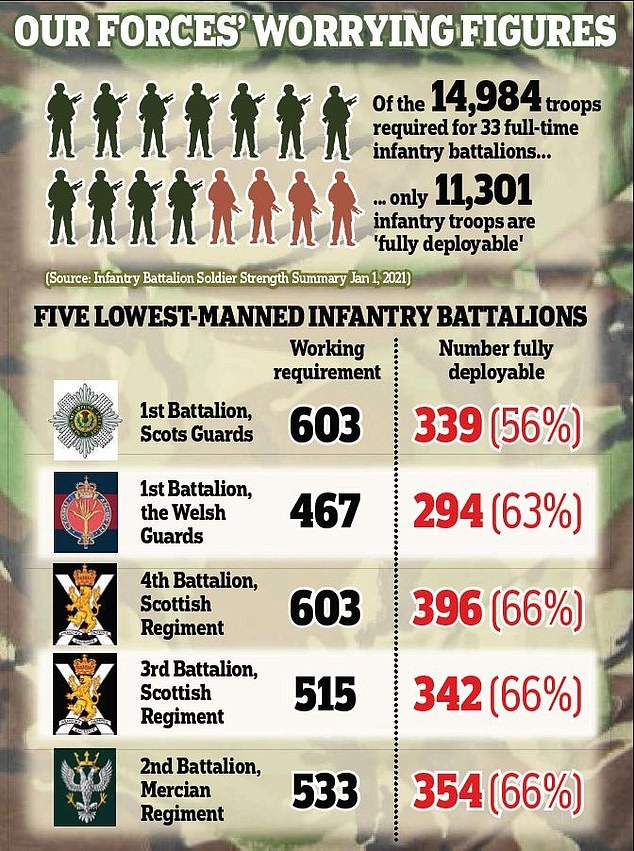
read more in our Telegram-channel https://t.me/The_International_Affairs

 11:36 24.04.2024 •
11:36 24.04.2024 •






















